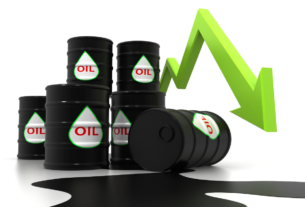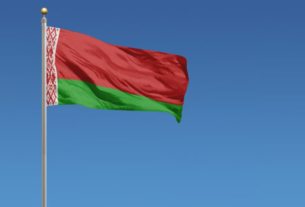Nigeria’s economy grew by 3.84% in the fourth quarter of 2024, marking its highest expansion since 2021. This growth was driven by strong performance in the services sector, which contributed over half of the country’s total output.
“The services sector remains the backbone of economic expansion,” said a senior government official. Industries such as financial services, telecommunications, and trade played a significant role in boosting GDP.
Full-year growth for 2024 reached 3.40%, up from 2.74% in 2023. Despite the improvement, this remains below the government’s target of 6%.
The services sector grew by 5.37% year-on-year, reflecting rising consumer demand and business activity. This sector accounted for 57.38% of Nigeria’s total GDP in the fourth quarter.
Agriculture recorded slower growth at 1.76%, down from 2.10% in the previous year. Industrial output also weakened, expanding by 2.00% compared to 3.86% in the same period in 2023.
Oil production averaged 1.54 million barrels per day in Q4 2024, slightly lower than 1.56 million barrels per day in Q4 2023. The oil sector’s real GDP growth was 1.48%, a sharp decline from 12.11% in the previous year.
“The oil sector’s volatility continues to pose risks to overall economic stability,” said an industry expert. Policymakers are pushing for greater diversification to reduce dependence on crude exports.
Economic reforms introduced by the government have started to show results. Measures aimed at improving infrastructure, financial stability, and investment climate have supported growth.
Challenges remain in inflation control and currency stability. Businesses and households are still dealing with rising costs of goods and services.
Nigeria plans to rebase its GDP to reflect changes in the economy. This will include emerging industries such as digital technology and e-commerce.
“The rebasing exercise will provide a more accurate picture of economic activity,” said a government spokesperson. Analysts expect this update to improve investor confidence.
External factors also influence Nigeria’s economic outlook. Global commodity price fluctuations and regional conflicts impact trade and investment flows.
The International Monetary Fund has urged oil-exporting nations like Nigeria to accelerate diversification efforts. Heavy reliance on commodity exports makes economic growth uneven and unpredictable.
The World Bank has revised its economic growth projections for sub-Saharan Africa. Nigeria is expected to grow by 3.3% in 2025, slightly below previous estimates.
The banking sector has remained stable despite economic uncertainties. Financial institutions continue to expand lending to businesses and individuals.
Manufacturing faces ongoing challenges, including high production costs and supply chain disruptions. Companies are seeking alternatives to reduce reliance on imported materials.
Consumer spending has increased in some areas but remains weak in others. Rising inflation affects household purchasing power, limiting overall demand.
Foreign direct investment flows have been mixed, with investors cautious about policy changes. Economic stability remains a key factor in attracting new capital.
The government has emphasized infrastructure development as a priority. Roads, power supply, and digital connectivity are critical to sustaining long-term growth.
Efforts to improve tax collection and public revenue have continued. Authorities aim to reduce fiscal deficits without overburdening businesses or citizens.
Nigeria’s stock market has shown resilience, with strong performance in key sectors. Investors are optimistic about future growth opportunities despite short-term risks.
The informal economy remains a major contributor to employment. Many Nigerians rely on small businesses and self-employment for income.
Businesses are adapting to new economic realities, seeking ways to remain competitive. Strategies include cost-cutting, digital transformation, and exploring regional markets.
You may notice changes in prices, job opportunities, and business conditions as the economy evolves. Staying informed about policy shifts and market trends will help you navigate potential challenges.
Nigeria’s economy is on a path to gradual recovery, supported by services and financial reforms. The coming months will determine whether the country can sustain this momentum and achieve stronger growth.




